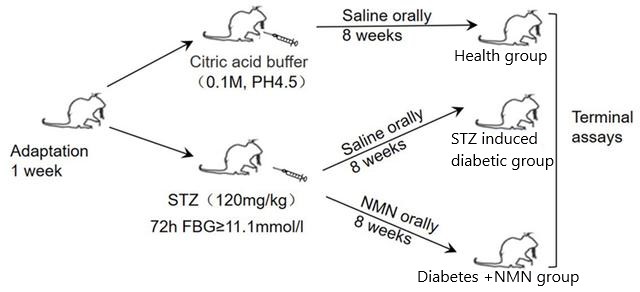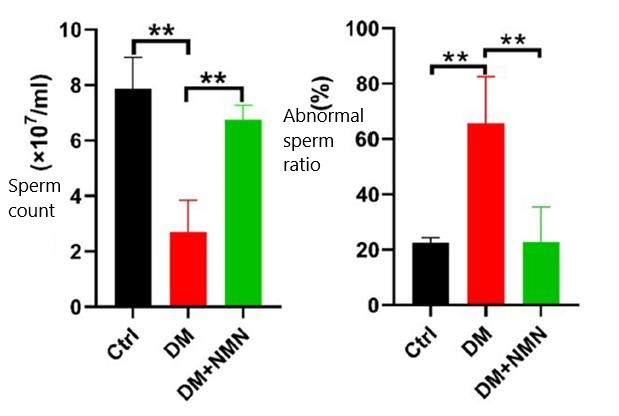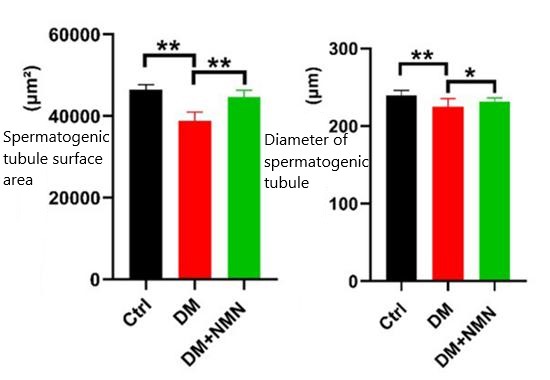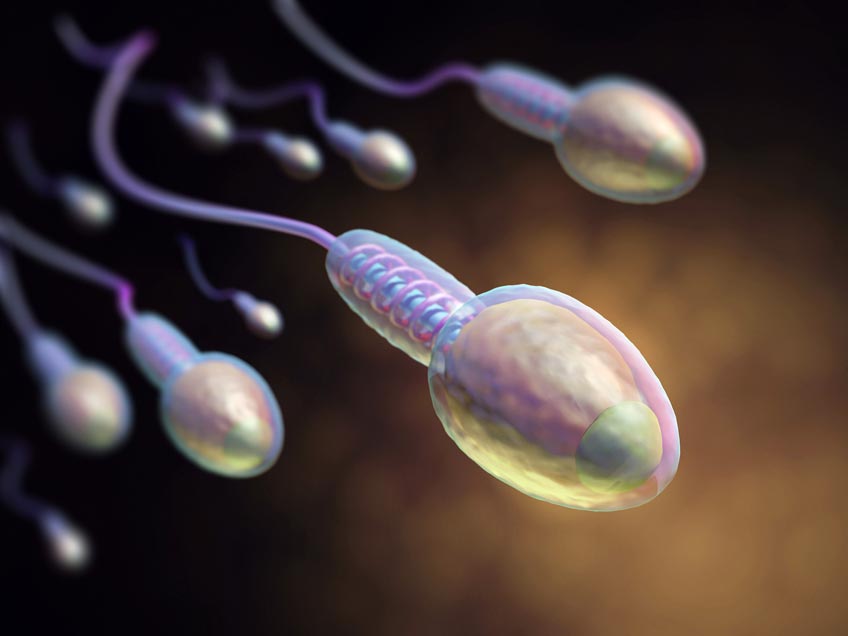With the continuous improvement of material living standards, the incidence of diabetes is also increasing year by year, which not only causes a serious burden on the kidney, but also has an impact on the reproductive system. NMN
Epidemiological studies have shown that about 50% of people with diabetes suffer from varying degrees of reproductive disorders, including decreased sexual desire, erectile dysfunction, and abnormal sperm.
In 2022, researchers at the University of South China found that supplementing male diabetic mice with NMN (β-Nicotinamide Mononucleotide) could improve the quantity and quality of sperm and restore their reproductive function.
The study was published in the journal Acta Biochimica et Biophysica Sinica in April of the same year.
In the experiment, the researchers first injected mice with an antibiotic called streptozotocin (streptozotocin, STZ). When it entered the mice, it targeted the islet B cells,
causing the mice to develop diabetes because they could not produce enough insulin.
After that, the researchers orally supplemented the mice with 500mg/kg (equivalent to about 2.3g in humans) of NMN daily for eight weeks.

After eight weeks, the researchers extracted semen from the mice and measured the number and morphology of the sperm.
The results show that the sperm number of diabetic mice (DM) is significantly decreased,
and the proportion of abnormal sperm is greatly increased. Taking NMN reversed this phenomenon.

Like humans, sperm produced in mice from the seminiferous tubules in the testes. So the researchers dissected the testicles of mice and used a microscope to look at the morphology of spermatogenic tubules.
The results showed that NMN supplementation significantly increased the area and diameter of spermatogenic tubules in diabetic mice,
which may be one of the reasons for the recovery of sperm count in mice.

After further experiments, the researchers found that supplementing with NMN also regulated the glycolysis process of Sertoli cells in the testes of mice,
allowing them to better support the growth of spermatogonial cells, thus restoring reproductive ability in males with diabetes.
In summary, this study found that supplementing NMN in male diabetic mice can significantly improve the quantity and quality of sperm,
thereby reversing the damage to reproductive function caused by diabetes.
At a time when the incidence of diabetes is increasing,
NMN may be able to enhance the fertility of male patients and help improve the quality of fertility.
reference
- 1. Ma, D., Hu, L., Wang, J., Luo, M., Liang, A., Lei, X., Liao, B., Li, M., Xie, M., Li, H., Gong, Y., Zi, D., Li, X., Chen, X., & Liao, X. (2022). Nicotinamide mononucleotide improves spermatogenic function in streptozotocin-induced diabetic mice via modulating the glycolysis pathway. Acta biochimica et biophysica Sinica, 54(9), 1314–1324. https://doi.org/10.3724/abbs.2022099



